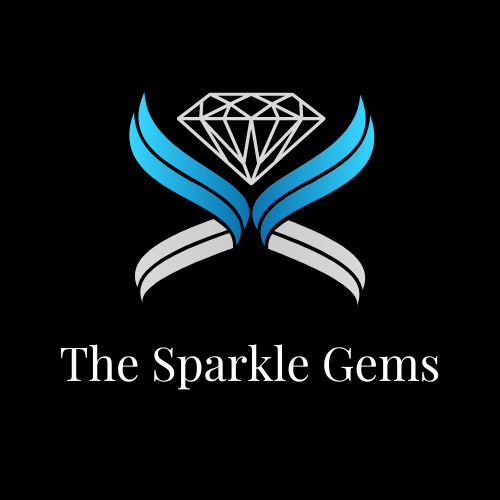No has pujado en esta subasta.
6.25 Carat Bi-Colour Ametrine Gemstone
- SKU
- Dimensiones (mm)
- 10.560 x 9.830 x 7.370mm
- Peso (cts)
- 6.250
- Treatment
- Heat Treatment
- Shape
- Asscher
- Tipo
- Faceted
- Clarity
- N/A
- Colores
-
Ametrine is a unique gemstone. The stone comes from two types of quartz being mixed together: amethyst and citrine. As you may have guessed, the name is actually a combination of the two stones that ametrine derives from.
The color of ametrine is a mixture of yellow citrine and purple amethyst blends. Other names for the ametrine gemstone include trystine or bolivianite. The latter name comes from the fact that just about all ametrine mined today is unearthed in Bolivia
Ametrine is a unique gemstone. The stone comes from two types of quartz being mixed together: amethyst and citrine. As you may have guessed, the name is actually a combination of the two stones that ametrine derives from.
The color of ametrine is a mixture of yellow citrine and purple amethyst blends. Other names for the ametrine gemstone include trystine or bolivianite. The latter name comes from the fact that just about all ametrine mined today is unearthed in Bolivia.
If you’re interested in the technical specifications of ametrine, then they are as follows:
Mohs Hardness: 7
Color: Color-zoned; Amethyst zones - purple to violet; Citrine zones - yellow to orange; Some stones may appear mauve, peach, rosy-gold, or champagne
Crystal structure: Trigonal
Luster: Vitreous (glassy)
Transparency: Translucent to transparent
Refractive index: 1.54-1.55
Density: 2.65
Cleavage: None
Fracture: Conchoidal
Streak: White
Luminescence: Sometimes weak fluorescence - blue or green in LW-UV & SW-UV
Pleochroism: Sometimes in zones; Amethyst zones - sometimes weak or moderate purple to reddish-purple; Citrine zones - sometimes weak yellow to orange
Birefringence: 0.009
Dispersion: 0.013
Optical effects: Potential "optical dishes" (visible light passing through in many directions, making different uniaxial optic figures visible) if concave dishes are cut into its surface
- SKU
- Dimensiones (mm)
- 10.560 x 9.830 x 7.370 mm
- Peso (cts)
- 6.250
- Treatment
- Heat Treatment
- Shape
- Asscher
- Tipo
- Faceted
- Clarity
- N/A
- Colores
-
Ametrine is a unique gemstone. The stone comes from two types of quartz being mixed together: amethyst and citrine. As you may have guessed, the name is actually a combination of the two stones that ametrine derives from.
The color of ametrine is a mixture of yellow citrine and purple amethyst blends. Other names for the ametrine gemstone include trystine or bolivianite. The latter name comes from the fact that just about all ametrine mined today is unearthed in Bolivia
Ametrine is a unique gemstone. The stone comes from two types of quartz being mixed together: amethyst and citrine. As you may have guessed, the name is actually a combination of the two stones that ametrine derives from.
The color of ametrine is a mixture of yellow citrine and purple amethyst blends. Other names for the ametrine gemstone include trystine or bolivianite. The latter name comes from the fact that just about all ametrine mined today is unearthed in Bolivia.
If you’re interested in the technical specifications of ametrine, then they are as follows:
Mohs Hardness: 7
Color: Color-zoned; Amethyst zones - purple to violet; Citrine zones - yellow to orange; Some stones may appear mauve, peach, rosy-gold, or champagne
Crystal structure: Trigonal
Luster: Vitreous (glassy)
Transparency: Translucent to transparent
Refractive index: 1.54-1.55
Density: 2.65
Cleavage: None
Fracture: Conchoidal
Streak: White
Luminescence: Sometimes weak fluorescence - blue or green in LW-UV & SW-UV
Pleochroism: Sometimes in zones; Amethyst zones - sometimes weak or moderate purple to reddish-purple; Citrine zones - sometimes weak yellow to orange
Birefringence: 0.009
Dispersion: 0.013
Optical effects: Potential "optical dishes" (visible light passing through in many directions, making different uniaxial optic figures visible) if concave dishes are cut into its surface
| Proveedor de envío | Envío a: país | Envíos al resto del mundo |
|---|---|---|
| Standard Shipping - Tracked | $9.00 / :días días | $9.00 / :días días |
| FedEx | $25.00 / :días días | $25.00 / :días días |
|
:país
:proveedor tiene un descuento de $29.99 en pedidos con 99 o más artículos
Resto del mundo
:proveedor tiene un descuento de $999.96 en pedidos con 6 o más artículos
|
||
| Registered Shipping | $19.99 / :días días | $19.98 / :días días |
|
:país
:proveedor tiene un descuento de $99.98 en pedidos con 3 o más artículos
Resto del mundo
:proveedor tiene un descuento de $100.00 en pedidos con 5 o más artículos
|
||

-
 Positivo
PositivoLovely color and fast shipping!
-
 Positivo
PositivoIntense color and good shipping.
¿Por qué los usuarios se superan a sí mismos?
Cuando se realiza una oferta, esta es la cantidad máxima que un usuario está dispuesto a ofertar por el producto. Luego, nuestro sistema ofertará automáticamente en nombre de ese usuario, aumentando gradualmente la oferta para mantener su posición como el mejor postor, hasta el máximo especificado.
Cuando hay un ícono que indica "Oferta automática", significa que nuestro sistema está realizando ofertas activamente para el usuario en función de su oferta máxima. Esto puede parecer como si los usuarios se estuvieran superando a sí mismos, pero es simplemente el resultado de que el sistema actualiza la oferta para reflejar el límite máximo de los usuarios.
















